The European Green Pact intends to stop imports of products resulting from deforestation. But such a decision will have considerable impacts on the populations who depend on these crops.
In the wake of COP26, and concerned with correcting its status as the second "world importer of deforestation" after China, the European Union has decided to November 17, 2021 to muscle his Green Deal to make the old continent climate neutral by 2050.
Remember that a "deforestation importer" is a country, a continent or a company, who imports products from deforestation. For the moment, the list of products that the EU will no longer bring in is quite short, but fraught with consequences: beef (and leather), cocoa, coffee, soya and palm oil.
Evil spirits might quip that the Beauce was once covered in (primary?) forest, and that the grain grown there also comes from deforestation, but humor is out of place when it comes to to save the planet.
Moreover, this measure did not make anyone smile in the countries directly targeted in West Africa. If the Fulani herders in the Sahelian zone are not feeding their cows with fodder harvested from deforested areas, and even less so with soybeans, the farmers and planters of Côte d'Ivoire, Ghana and the entire region are affected by at least three of the five products appearing on the blacklist (coffee, cocoa, palm oil).
However, these different types of agricultural production are essential to their prosperity.
20% of Ivorians live off cocoa
Cocoa, of which Côte d'Ivoire is the 1er global producer with more than 2,2 million tonnes in 2021, makes live near 6 million people in the country, i.e. nearly 20% of the population.
Palm oil, of which it is the 9e world producer with nearly 500 tonnes in 000, directly supports the needs of 220 people, while 2 million inhabitants of Côte d'Ivoire live from activities related to the sector.
Finally, coffee, of which it was for a long time the thirde world producer, no longer occupies the central place (61 tonnes in 000 compared to 2021 in 380), but continues to provide interesting additional income to farmers in the forest zone in the south-east of the country.
This means that sanctioning these crops risks seriously destabilizing the Ivorian economy at the same time as endangering the social fabric.
Rubber, cashew, banana… next on the list?
And we can foresee that other pillars of its wealth (rubber, cashew, cotton, banana, pineapple) will one day or another fall within the EU's targets since they are also the result of deforestation. The country produced 950 tonnes of natural rubber in 000, i.e. 80% of the latex comes from the African continent (4e world rank).
The savannahs of northern Côte d'Ivoire have produced 1 million tons of cashews in 2021 (1st in the world) and 250 small producers grouped together in a cooperative have started processing cashew kernels (000e global exporter). It is also in the savannahs to the north that 130 smallholders have produced 580 tonnes of cotton in 000 (2e African rank).
As for the fruits essentially destined for Europe, they represent 300 tons of bananas et 170 tonnes of the famous “Ivory Coast pineapple” which ranks second in the European markets.
Two questions (of simple common sense) then come to mind.
Crops that store carbon
First of all, if it is true that it was necessary to deforest to introduce the cash crops that make Côte d'Ivoire prosperous, was it not then "reforested" by planting, in the order of appearance in the landscape, coffee trees, cocoa trees, oil palms, rubber trees and cashew trees?
Hasn't the so-called “primary” forest been replaced by another forest, made up of trees or shrubs whose carbon sink capacity is not necessarily lower? Because even the oil palm displays a fairly good balance in terms of carbon storage.
As for cocoa, did the European experts lose sight of (or never know) that it was a shrub which generally grows under natural shade, sheltered by trees taller than it, therefore in full forest, even if it is no longer "primary"?
A population multiplied by 8 since 1960
Then, didn't we first deforest simply to feed ourselves? The emblematic slash-and-burn cultivation, still very widely practiced especially on the so-called “forest” pioneer fronts of tropical climate regions, first meets the food needs of a population of which we are reminded – at the risk of sounding like a neo-Malthusian – that it has increased fivefold since 1960 in the Sahelian zone, where cattle breeding is widespread and herds have probably followed a similar demographic curve.
As for the population of Côte d'Ivoire, it has been multiplied by eight in the same time (from 3,504 million in 1960 to 29,389 million at the 2021 census). Producing eight times more food products supposes multiplying by eight either the yields or the cultivated surfaces.
The European Green Pact intends to stop imports of products resulting from deforestation. But such a decision will have considerable impacts on the populations who depend on these crops.
In 2021, Ivory Coast has dedicated more than 2 million hectares of land to its production of yam (4,970 million tons), cassava (2,047 million tons), plantain (1,519 million tons), rice (673 tons) and maize (000 tons). How many hundreds of thousands of new hectares have been cleared (therefore deforested) for this?
And this calculation does not take into account the need for firewood, while this source of domestic energy is far from being replaced by substitute products, which we would like them to be preferably “green”.
Post-2020 deforestation
Admittedly, we may (or may not) accept the above reasoning, according to which we have replaced forests with trees. On the other hand, it will no doubt be objected that we have disrupted biodiversity. That's right. But this is also what Europe had done by replacing its groves with open fields, and this transformation was linked – already – to questions of yield and productivity.
Do we have better proposals for the African continent?
Fortunately, the European Union directives stating the objective of only finding “zero deforestation” products on the European market within three or four years are not drastic. They require operators to verify that imported cocoa, coffee, or palm oil are not the result of post-2020 deforestation.
The checks can be carried out with the help of Copernicus, the European earth observation program, a kind of video surveillance camera whose images can be rewound. Will the new cocoa plants under an old shadehouse escape it?
Risk of weakening part of the population
We can only be sensitive to the concerns of European leaders when they consider the future of the planet. But they will inevitably come up against the major contradiction that arises when we begin to want to act: isn't the danger of weakening, or even endangering, part of the world's population, among the poorest, by taking drastic measures in the name of environmental protection?
We can already see it: prohibiting the exploitation of coal risks depriving the inhabitants of South African townships of electricity. Preserving biodiversity in classified forests in West Africa allows the tsetse fly to reproduce and thrive there before spreading into populated areas by spreading sleeping sickness.
European Union decision-makers, elected officials and technocrats, should therefore reread their copy carefully, thinking more about the hundreds of millions of Africans who will suffer from the implementation of these measures to combat "the importation of deforestation », whereas they are hardly responsible for climate change, given that they emit few greenhouse gases.
In this context of political ecology, it will also be necessary to consider one day or another the problem of virtual water, that is to say, to charge for the African water which has been used to produce cocoa, palm oil, pineapple, banana, etc. But charge it to whom? Of course, that's another subject, but it's the same problem.![]()
![]()
Christian-Bouquet, Researcher at LAM (Sciences-Po Bordeaux), professor emeritus of political geography, Bordeaux Montaigne University
This article is republished from The Conversation under Creative Commons license. Read theoriginal article.















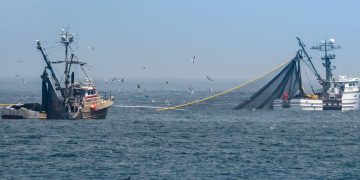

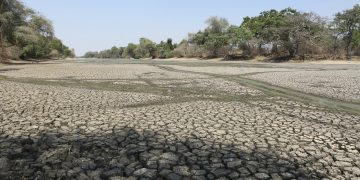

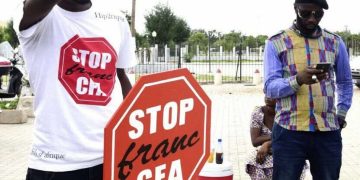
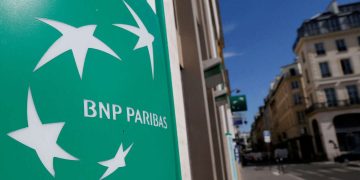
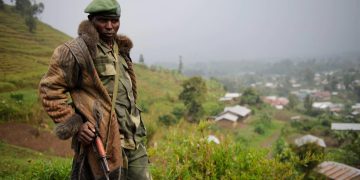




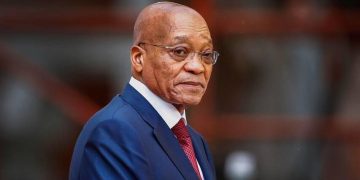
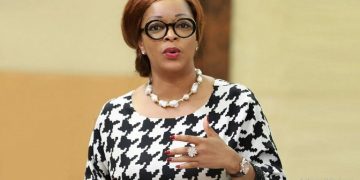
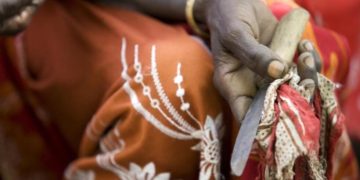

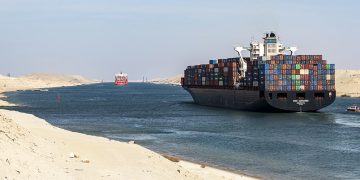
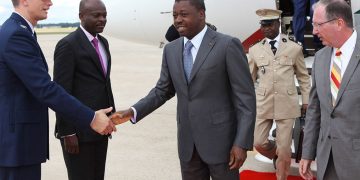



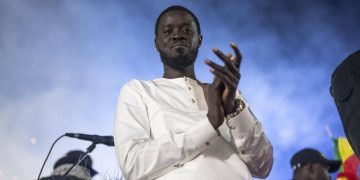
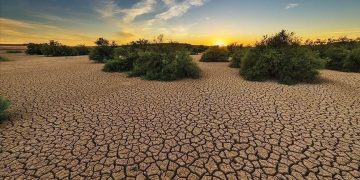


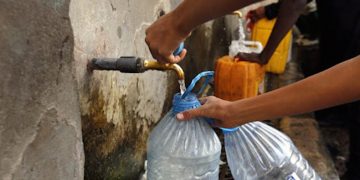
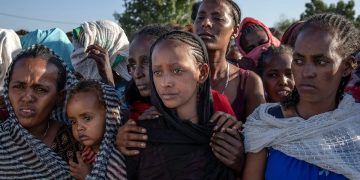

![[Editorial] 30 years later, is apartheid really over?](https://lejournaldelafrique.com/wp-content/uploads/2021/06/caricature-jda-apartheid-360x180.jpg)
![[Edito] Gabon and Commonwealth: the whims of Prince Ali](https://lejournaldelafrique.com/wp-content/uploads/2021/06/caricature-JDA-Bongo-360x180.jpg)
![[Editorial] Facebook and Twitter, more dictators than dictators?](https://lejournaldelafrique.com/wp-content/uploads/2021/06/Caricature-JDA-FB-TW-360x180.jpg)
![[Edito] Rwanda: for the French apologies, we will have to go back](https://lejournaldelafrique.com/wp-content/uploads/2021/05/Caricature-rwanda-JDA-360x180.jpg)
![[Edito] Guinea: Alpha Condé, the oppressed turned oppressor](https://lejournaldelafrique.com/wp-content/uploads/2021/05/Caricature-Alpha-Conde-360x180.jpg)
![[Edito] CFA Franc: a facelift cut to measure for France](https://lejournaldelafrique.com/wp-content/uploads/2021/05/Caricature-JDA-CFA-360x180.jpg)
![[Edito] Riyad Mahrez: One, two, three, viva l'Algérie!](https://lejournaldelafrique.com/wp-content/uploads/2021/05/caricature-Mahrez-360x180.jpg)
![[Edito] Niger: Mohamed Bazoum begins a delicate balancing act](https://lejournaldelafrique.com/wp-content/uploads/2021/04/image_6483441-1-360x180.jpg)
